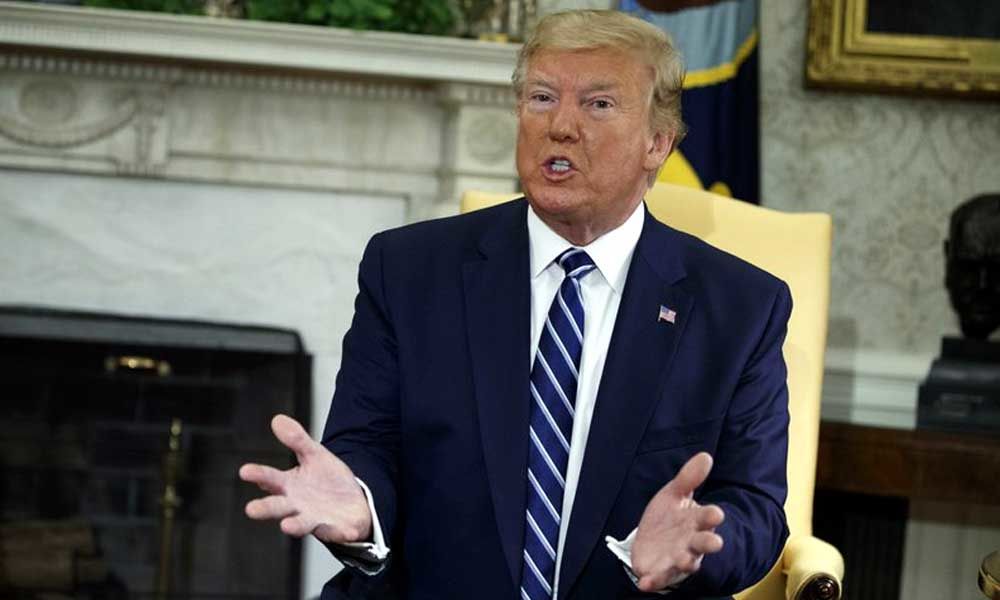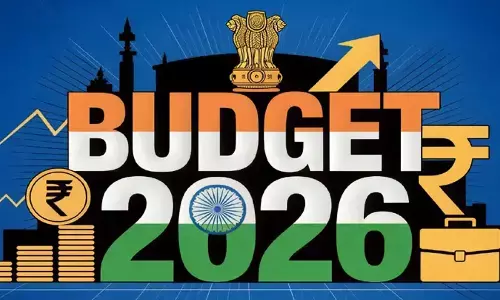Trump summons security team, calls Iran attack 'big mistake'

President Donald Trump declared Thursday that "Iran made a very big mistake" by shooting down a U.S. surveillance drone over the Strait of Hormuz and gathered top national security officials at the White House to discuss options.
Washington: President Donald Trump declared Thursday that "Iran made a very big mistake" by shooting down a U.S. surveillance drone over the Strait of Hormuz and gathered top national security officials at the White House to discuss options.
Asked earlier in the day about a U.S. response to the attack, the president said pointedly, "You'll soon find out." But he also suggested that shooting down the drone was a foolish error rather than an intentional escalation of the tensions that have led to rising fears of open military conflict. "I find it hard to believe it was intentional, if you want to know the truth," Trump said at the White House.
"I think that it could have been somebody who was loose and stupid that did it." On Capitol Hill, leaders urged caution to avoid escalation, and some lawmakers insisted the White House must consult with Congress before taking any actions. Secretary of State Mike Pompeo and national security adviser John Bolton have advocated hardline policies against Iran, but Rep. Adam Schiff, the chairman of the House intelligence committee, said "the president certainly was listening" when congressional leaders at the meeting urged him to be cautious and not escalate the already tense situation.
House Speaker Nancy Pelosi said no specific options for a US response were presented at the more than hour-long meeting. Senate Majority Leader Mitch McConnell said, "The administration is engaged in what I would call measured responses." And late Thursday, House Republicans on the Foreign Affairs, intelligence and Armed Services committees issued a statement using the same word, saying, "There must be a measured response to these actions." The downing of the huge, unmanned aircraft , which Iran portrayed as a deliberate defense of its territory rather than a mistake, was a stark reminder of the risk of military conflict between U.S. and Iranian forces as the Trump administration combines a "maximum pressure" campaign of economic sanctions with a buildup of American forces in the region.
On Thursday, Iran called the sanctions "economic terrorism," insisted the drone had invaded its airspace and said it was taking its case to the United Nations in an effort to prove the US was lying about the aircraft being over international waters. It accused the US of "a very dangerous and provocative act." The drone — which has a wingspan wider than a Boeing 737 — entered Iranian airspace "despite repeated radio warnings" and was shot down by Iran, acting under the UN Charter which allows self-defense action "if an armed attack occurs," Iran's UN Ambassador Majid Takht Ravanchi said in a letter to the UN secretary-general.
Trump, who has said he wants to avoid war and negotiate with Iran over its nuclear ambitions, appeared to play down the significance of the shootdown. He cast it as "a new wrinkle ... a new fly in the ointment." Yet he also said "this country will not stand for it, that I can tell you." Shortly before Trump spoke, Air Force Lt. Gen. Joseph Guastella, commander of U.S. Central Command air forces in the region, took a more pointed view of the shootdown in an area where Trump has blamed Iran for attacking shipping vessels.
"This attack is an attempt to disrupt our ability to monitor the area following recent threats to international shipping and free flow of commerce," he said. The Trump administration has been putting increasing economic pressure on Iran for more than a year. It reinstated punishing sanctions following Trump's decision to pull the US out of an international agreement intended to limit Iran's nuclear program in exchange for relief from earlier sanctions. The other world powers who remain signed on to the nuclear deal have set a meeting to discuss the U.S. withdrawal and Iran's announced plans to increase its uranium stockpile for June 28, a date far enough in the future to perhaps allow tensions to cool.
Citing Iranian threats, the U.S. recently sent an aircraft carrier to the Persian Gulf region and deployed additional troops alongside the tens of thousands already there. All this has raised fears that a miscalculation or further rise in tensions could push the US and Iran into an open conflict 40 years after Tehran's Islamic Revolution.
















